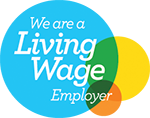
Honest and open discussion at the launch of the Film and Television Charity on 15 March 2018.
Posted by Sharon Elliott on 15 March 2018
Sharon Elliott writes on the launch of the Film and Television Charity (formerly the CTBF) and a sense that the industry is waking up to its responsibilities on welfare.
Something amazing happened today. I found myself in a room with a range of film and TV industry folk, from all corners of the industry and from across the country too. Content producers, company bosses, film-makers, distributors, directors, executive producers, entrepreneurs. All of them being open, together, about the poor working practices which make film and TV careers difficult, hard to sustain, and less than inclusive.
Workforce welfare
None of the speakers at today’s Re:Focus2018 - an event which relaunched the Cinema and Television Benevolent Fund as the Film and Television Charity - were just saying the right thing; I felt genuine recognition that our film and TV industry, broadly speaking, for all of its success, is failing on workforce welfare. Long hours, isolation, nepotism, bullying and harassment, exploitation; they’re just some of the devils which tarnish the industry’s reputation.
In a very welcome statement, Philip Knatchbull, CEO of Curzon group, said he was a convert to the benefits of the Living Wage, having seen the change bring benefits for staff, customers and the business. Curzon introduced the Living Wage in 2014 after a BECTU campaign.
Simon Cornwell, co-CEO of The Ink Factory, revealed that his interns are paid the Living Wage and that they are drawn from under-represented groups. He condemned unpaid internships as 'insidious' perpetuating lack of access.
Meanwhile award-winning Sixteen Films producer, Rebecca O'Brien, said that she would be monitoring her productions for abusive behaviour, having been dismayed to learn long after the fact that a woman freelancer had suffered both xenophobia and sexual harassment on one of her productions (not a Ken Loach project). She said the incidents had been out of her sightline. Rebecca also took the opportunity to call out Picturehouse for its failure to pay the Living Wage. "Paying the Living Wage should be normal'" she said.
Years as a union official mean that I’m used to hearing about current industry travails from members and working with colleagues to bring about change. It was great today to get a sense that the employers also understand that the industry needs fixing.
Are times a changing?
In BECTU we love the creative sectors; we appreciate the struggle many have to endure to create and to deliver for audiences, whilst at the same time trying to make a living which allows time to smell the roses.
Are times a changing? The horrors of Weinstein have encouraged every walk of life to take a long hard look in the mirror and to fess up to the need for change. Gender, race, disability and class discrimination are hurting our industries and there can be little doubt that we’re at a crossroads. In effect, the collective yelling of “I’m as mad as hell, and I’m not going to take this anymore!” has found its way into several new projects, both at home and abroad, headlined by #metoo and #timesup.
See Equity’s investigation to find practical solutions to combat sexual harassment in theatre, film, TV, audio and new media industries launched last November and the January 2018 survey by The Stage which shone a light on experience of bullying and harassment in theatres, across all departments. Employers too are updating their policies.
BFI Principles & Guidance
Valentine’s Day this year saw the launch of the BFI’s Principles & Guidance on Bullying and Harassment, a major piece of work backed by BAFTA and many industry organisations, including BECTU. The guidance seeks to equip the film and TV workplace to deal with bullying and harassment. Critically, the focus is on all workers, including freelancers, who are arguably the most vulnerable when it comes to experiencing abuse and being able to challenge it. Stats from today's event suggest that of the 340,000 workers in UK film and TV, two-thirds are self-employed or freelance. Encouragingly, we heard that a Netflix production, which recently started shooting here, included the Principles and Guidance in its briefing to production teams, something which we want to see happening on every production. (A new industry helpline, backed by the Film and Television Charity, the BFI and the Production Guild, aims to improve workers' wellbeing. For more on this see below).
Eyes Half Shut campaign
BECTU has supported the release of the Principles & Guidance by sharing details with every single union member. We’re also keen to stay engaged with the BFI and its partners to monitor take up of the guidance and to keep the content under review.
Current debates also validate our Eyes Half Shut campaign launched last October. Our research demonstrated that long hours don’t add to the creative process and worse still they lead to a loss of talent. We’ll be sharing more insights into this negative culture in the coming weeks. Ultimately, however, our mission is to engage the employers. Two new industry agreements – TV Drama released in December 2017 – and the Major Motion Film Agreement which goes live on 2 April, should provide more opportunities to make the case.
New industry charity
So the former CTBF is now the Film and Television Charity and is reaching out in many new ways to the industry’s workforce. Financial support to level the playing field for creatives outside London is available, as are the John Brabourne Awards which provide funds to help with career development. The charity is also open to providing assistance to workers unable to earn due to ill-health and to families affected by loss of income. Grants are means tested.
Coming next month (official launch date to be confirmed) will be the Film and TV Support Line, a new helpline, available 24/7, offering professional advice and support on a range of issues including bullying and harassment, mental health, debt, addiction, legal advice and bereavement counselling. The helpline will be a vital addition to the support available to the workforce from industry trade unions, such as BECTU, and from other industry organisations including the employers.
Is the industry starting to get its act together on welfare? We certainly hope so.
Sharon Elliott is senior communciations officer for the BECTU Sector of Prospect.
Comments
Sorry, comments are not currently enabled for this post.

